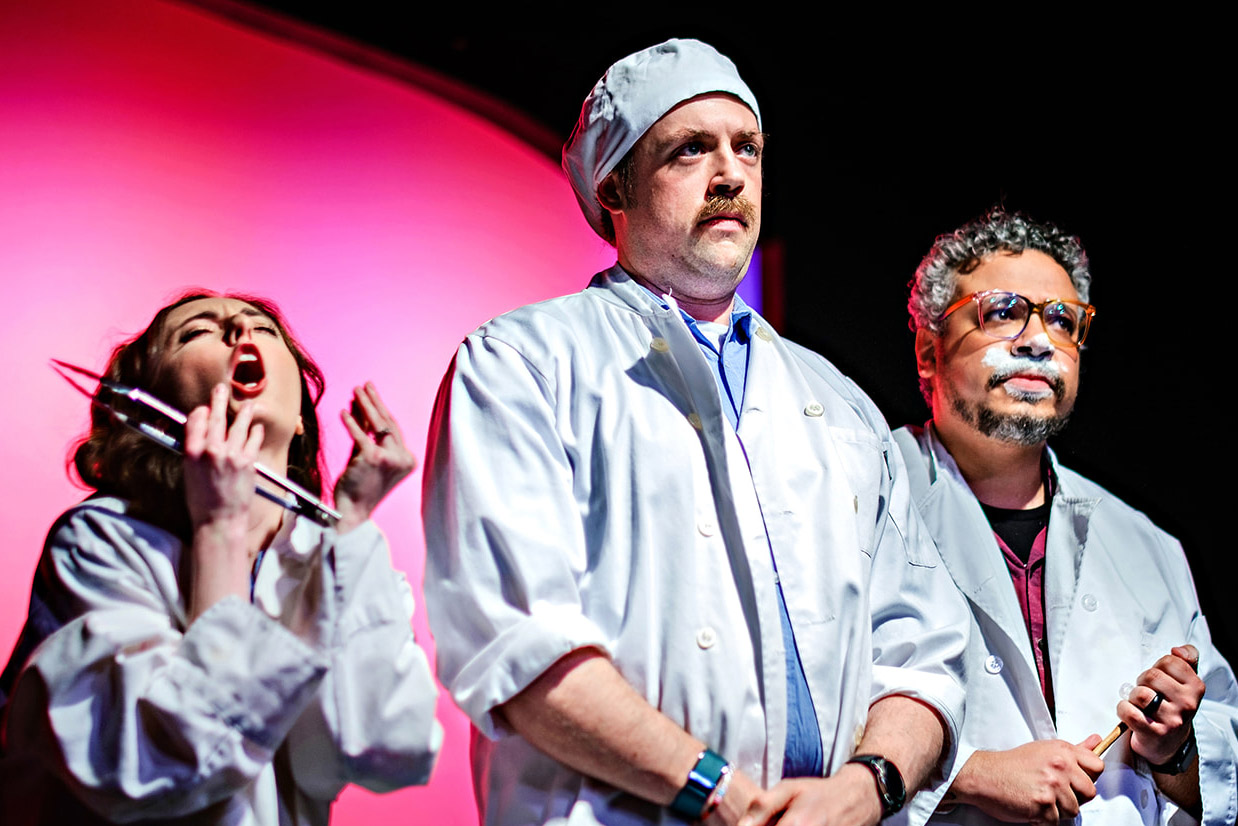An old showbiz cliché has it that a musical’s success can be gauged on whether or not the audience is humming the tunes in the aisles after the curtain falls. A review can’t just end there, of course, but I still found it pretty telling that at intermission on opening night of Troubadour (through February 12 at the Alliance Theatre), I heard humming of the chorus of Act One’s insanely catchy closing number not just in the aisles, but in the lobby, at the bar, even in line for the restroom. It’s been a while since I’ve been to a musical like that, but composer (and Sugarland co-founder) Kristian Bush’s songs have that sort of old school catchiness. People were humming, and there didn’t seem to be much choice in the matter.
The characters in Troubadour are musicians themselves, so, unlike in a lot of old school musicals, there’s always a reason for someone to have a guitar on hand or to start urging someone else, “C’mon, kid, let’s hear what you got.” (It’s still a musical, though, so of course the kid’s got something great). It’s Nashville, 1951, and country-gospel singer Billy Mason (Radney Foster) is getting ready to retire. His teenaged son Joe (Zach Seabaugh), who has been supporting his father’s act for years, wants to break out on his own in the realm of secular country music, but he’s full of self-doubt, and his deeply religious father is discouraging the move. Hovering on the periphery and encouraging Joe to succeed are aspiring songwriter Inez (Sylvie Davidson), who wants to write his songs, and Izzy (Andrew Benator), who wants to design his rhinestone-studded suits and manage the act.
Even by musical terms, book writer Janece Shaffer’s drama lacks heft. Real threat seems miles away, and we know from the moment we first hear about it in Act I, Scene One that the big tribute concert at the end will be a smashing success. Both the atmosphere and the conflict here are sweet, quaint, nostalgic, comfortable. But no matter. The goings-on have a dreamy sweetness, and we’re hooked in by the music, often played in simple but irresistible arrangements of acoustic guitar, bass and accordion and sung by an equally irresistible cast.
Though we’re watching immensely talented and accomplished performers in glittering costumes on elaborate sets, the story has it that we’re watching underdogs trying to make their way behind-the-scenes and on the fringes of success. Director Susan Booth manages to evoke a convincing sense of that simplicity, intimacy and human scale, something that helps give the ginormous musical its crucial beating heart.
Even so, the pleasant, chugging momentum leading us up to the awaited happy outcome inevitably wanes in the middle of Act II, and we seem to drift weightless for a while. A major character disappears and reappears in a way that’s narratively unsatisfying, and the father’s quaint and admirable old-time religiosity inexplicably becomes full-on fire-and-brimstone near-apoplectic crazy in a final scene. And strangely, though every other song in the show is delightful, the show’s big final number is ungainly and wordy; it’s the evening’s least appealing — and the humming was heard mostly at intermission, less at the end.
All in all, Troubadour is a delicious brew of nostalgia and great music, but some viewers may detect an aftertaste of something unpleasant and conservative in the seductively sweet concoction. There’s an imagined, simpler America of another time, an evocative depiction of a mid-20th century South strangely absent of racial strife or even racial difference, and a blithe assumption of shared agreement that heartlandy faith-and-family values are always synonymous with purity, kindness and goodness. In taking a look back, the show may be more of the moment than its creators intended. Anyway, I’ll venture an answer to Waylon Jennings’ famous and salient musical question: I’m pretty sure Hank didn’t done it this way.







